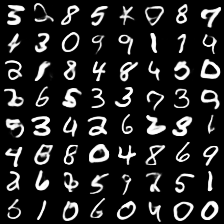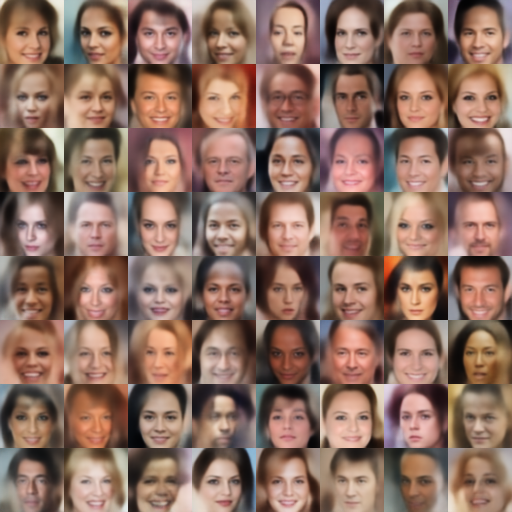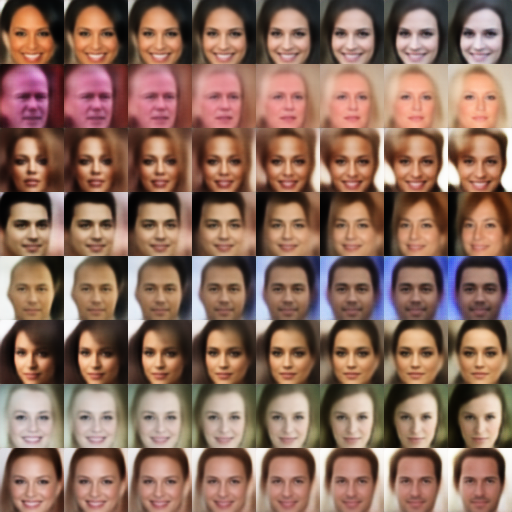This repository contains the code to reproduce the core results from the paper Adversarial Variational Bayes: Unifying Variational Autoencoders and Generative Adversarial Networks.
To cite this work, please use
@INPROCEEDINGS{Mescheder2017ICML,
author = {Lars Mescheder and Sebastian Nowozin and Andreas Geiger},
title = {Adversarial Variational Bayes: Unifying Variational Autoencoders and Generative Adversarial Networks},
booktitle = {International Conference on Machine Learning (ICML)},
year = {2017}
}
This project uses Python 3.5.2. Before running the code, you have to install
The former 5 dependencies can be installed using pip by running
pip install tensorflow-gpu numpy scipy matplotlib tqdm
Scripts to start the experiments can be found in the experiments folder. If you have questions, please
open an issue or write an email to [email protected].
To run the experiments for mnist, you first need to create tfrecords files for MNIST:
cd tools
python download_mnist.py
Example scripts to run the scripts can be found in the experiments folder.
Samples:
To run the experiments on celebA, first download the dataset from here and put all the images in the datasets/celebA folder.
Samples:
Interpolations:


